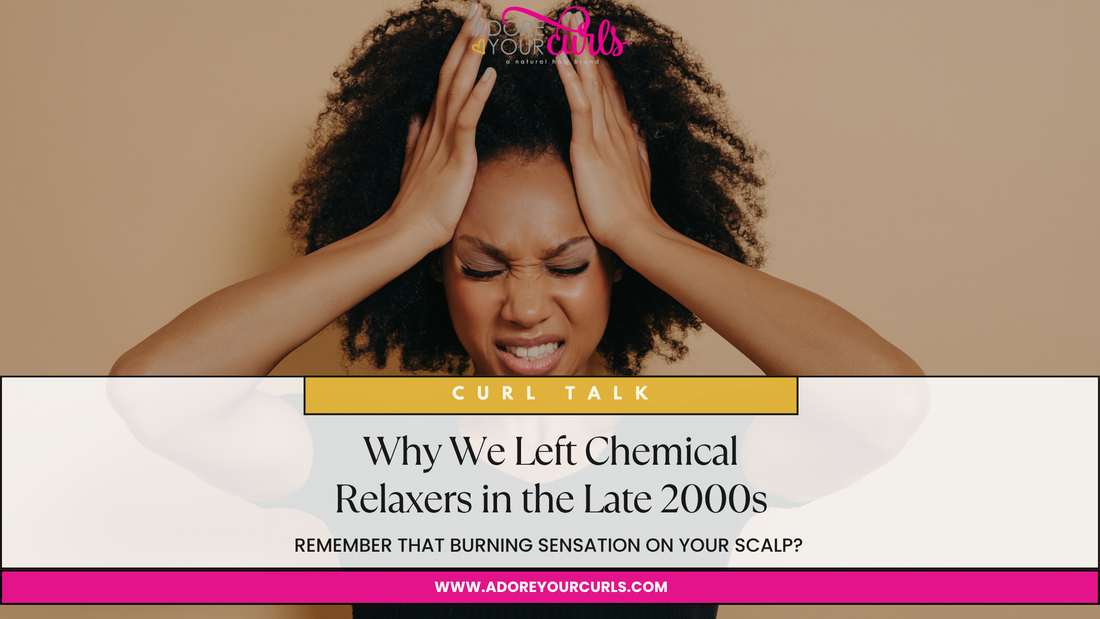
WHY WE LEFT CHEMICAL RELAXERS IN THE LATE 2000s
Share
Remember that burning sensation on your scalp? The thick petroleum jelly around your edges, the chemical smell, and the silence as your hairdresser watched the clock? If you know, you know. For many of us, that was just part of growing up. Relaxers were normal. Expected. Even praised.
Around 2008, the Black community began to question traditional beauty standards and became more aware. We started reading ingredient lists. Reports linked relaxers to scalp damage, hormonal disruption, and even fibroids. We didn’t just want straight hair. We wanted healthy hair. Our own hair.
Suddenly, relaxers weren’t the only option. And for many of us, it stopped being an option at all.
Breaking Up with "The Creamy Crack"
We called it "creamy crack" for a reason. The addiction was real, not to the chemicals themselves, but to the perceived safety they provided. Relaxed hair meant job interviews where we didn't have to worry about being "too ethnic." It meant fewer stares, fewer questions, fewer battles. Or so we thought.
But 2008 brought a different kind of consciousness. Maybe it was the economic downturn making us question every expense. Maybe it was Barack Obama's historic campaign showing us new possibilities for Black excellence. Or maybe it was simply time—time for us to stop apologizing for the hair that grew from our heads.
Where We Are Now
Going natural wasn’t always easy. Many of us had no idea what our natural hair looked like, let alone how to care for it. There were tears. Failed braid-outs. Impulse wigs. But there was also growth—literal and emotional.
Now, we’re moving forward with more knowledge, more grace, and more intention. We’re learning from our mistakes, swapping product tips, and building communities that uplift and educate.
Even better? We’re creating products that speak directly to the needs of our tight coils and tender scalps—products that don’t treat our hair like a problem to fix, but a crown to care for.
It’s more than a trend. It’s a revolution. And it’s long overdue.
